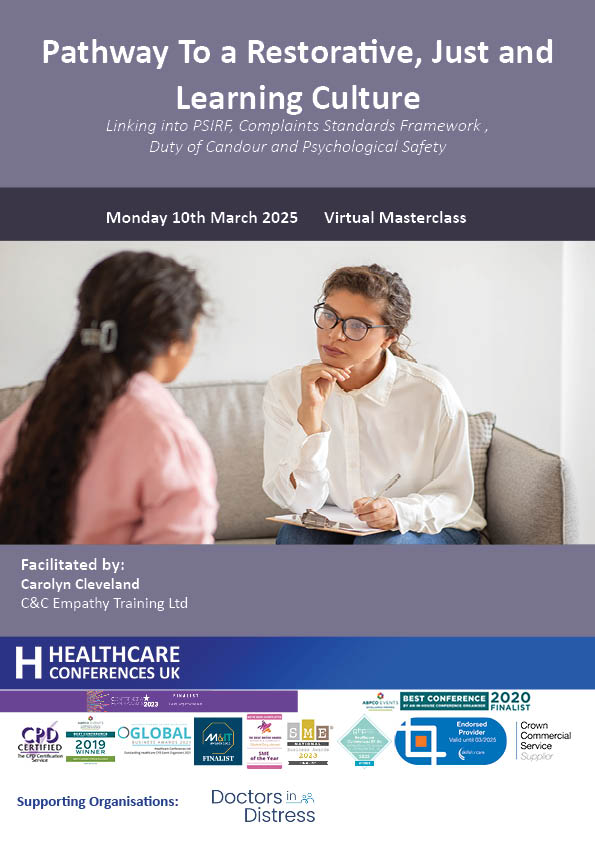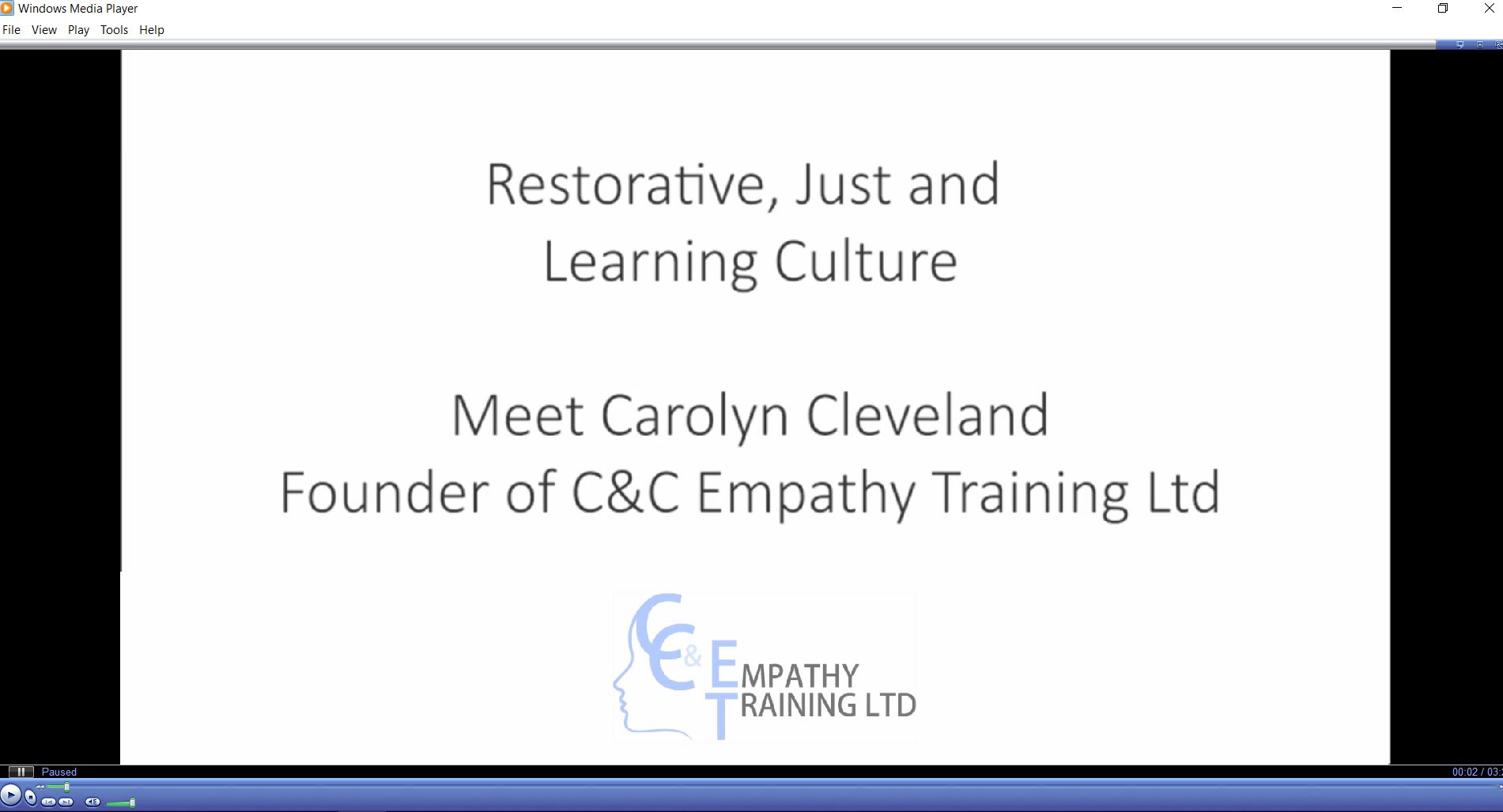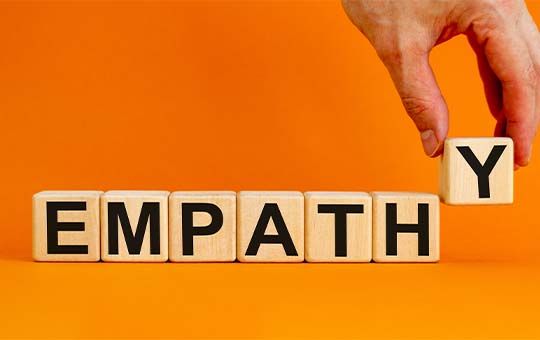This one-day masterclass focuses on the Principles and Practice of a Restorative, Just, and Learning Culture, emphasising how empathy is crucial to fostering a fair and psychologically safe environment. Through experiential learning using a true story, participants will have the opportunity to see things differently; examining how empathy and compassionate leadership underpin a Just Culture, helping organisations move from blame to learning, accountability, and system improvement.
Using candid video material between facilitator, Carolyn Cleveland and Dr Chris Turner, Emergency Medicine Consultant and Co-Founder of Civility Saves Lives, potential divide of lived experience, psychology, frontline healthcare and governance is bridged.
The session will bring empathic thinking into real-life practice, guiding attendees to understand the emotional complexities of patient safety incidents, staff fears and wellbeing and working with human reactions. It will highlight the difference between retributive and restorative practices and how adopting restorative approaches can enhance both patient and staff outcomes.
In a safe, supportive environment, participants will reflect on how personal biases affect communication, and explore how culture change can be achieved and the challenges. The session will integrate self-reflection activities to strengthen personal well-being, emotional resilience, and inclusive leadership skills, which are vital for creating a compassionate, high-performing team.
Using emotive and thought provoking material, balanced with the science of emotional intelligence, the real impact of a restorative, just and learning culture principles are felt, ensuring attendees leave with actionable insights, combined with emotional understanding to drive systemic change in their teams and wider organisations.












